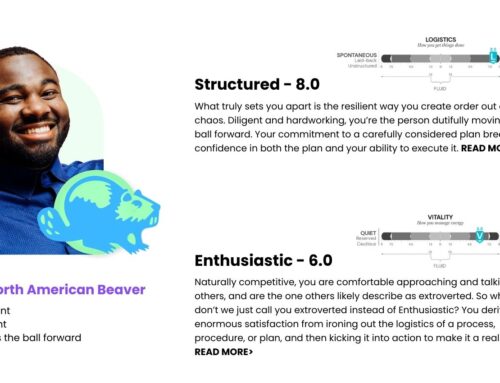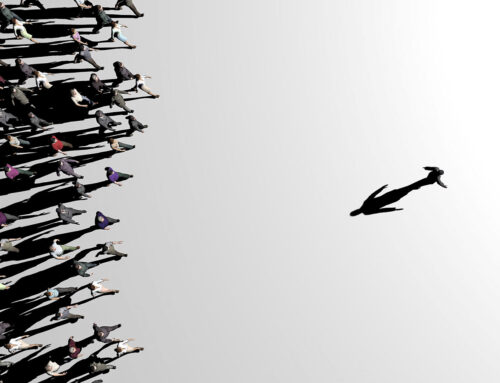Can Lemon Juice Make You Invisible?
Are you funny, intelligent, and capable? Or do you just think that you are? How would you know the difference since the instrument needed to gauge your intelligence is itself the thing so capable of being ignorant?
The question – and particularly the answer you give – is non-trivial, because it could reveal the degree to which you are accurately assessing your own competencies and capabilities. The writer and poet, Charles Bukowski, famously stated that the problem with the world (he found many) was that “the intelligent people are full of doubts while the stupid ones are full of confidence.”
Bukowski was pointing to a quality that would later be quantified in something known as the Dunning-Kruger effect. A cautionary tale if ever there was one, Dunning-Kruger speaks to the dangers of not knowing what we don’t know.
Wearing the Juice
On January 6, 1995, McArthur Wheeler and Clifton Earl Johnson robbed two Pittsburgh area banks without making any attempt to disguise or obscure their identities. During his inevitable arrest, a perplexed Wheeler demanded to know how the police had identified him since he was “wearing the juice.”

An unmasked McArthur Wheeler, face coated in lemon juice, robbing a Pittsburgh bank.
Turns out, Wheeler had read that lemon juice could work as an effective form of invisible ink. He thereby reasoned it could similarly make his face invisible to bank security cameras. As you can see in the security footage, it did not.
But you knew that, right? Most of us do.
Yet just about all of us, to one degree or another, overestimate one or more aspects of our abilities, and that’s where the trouble begins.
The Dunning-Kruger Effect
The robbery ultimately caught the attention of Cornell psychologist David Dunning who, along with graduate student Justin Kruger, set out to determine the degree to which someone’s perception of competence measures up to reality.
Or as Dunning put it: “If Wheeler was too stupid to be a bank robber, perhaps he was also too stupid to know that he was too stupid to be a bank robber — that is, his stupidity protected him from an awareness of his own stupidity.”
Their 1999 paper – Unskilled and Unaware of It: How Difficulties in Recognizing One’s Own Incompetence Can Lead to Inflated Self-Assessments – gave birth to the Dunning-Kruger effect, which illustrates the dangerous ways that incompetence can reinforce itself.
The problem in this world is that the intelligent people are full of doubts, while the stupids on are full of confidence. – Charles Bukowski
One of the most notable findings in the paper: the greater the degree of incompetence, the more likely the individual will overestimate his or her abilities. (Ironically, those with actual competence are at greater risk of underestimating their abilities – something known as the Imposter Effect.)
How to Avoid Wearing the Juice
While it’s easy to chuckle at the McArthur Wheeler escapade, it becomes less humorous when we discover that all of us exhibit symptoms of the Dunning-Kruger effect.
Consider, for example, that 88% of U.S. drivers consider themselves above average behind the wheel, which of course is statistically impossible.
In fact, just about anywhere researchers look people overestimate their talents. Even so-called knowledge experts grossly overestimate their abilities relative to those of their colleagues.
Some additional examples:
- 90% of faculty at the University of Nebraska rated their teaching skills as above average
- 42% of software engineers rated themselves as belonging in the top 5% of their field
- 70% of students believe they possess above-average leadership skills
- 67% of Americans with low financial literacy rated themselves as belonging in the top tier
So how can we protect ourselves from falling victim to the Dunning-Kruger effect?
First, ask for candid feedback (and don’t lash out at any negative reviews). Others can help keep us in check and provide a more objective assessment of our abilities.
Second, keep learning. The more we learn, the less likely we’ll suffer gaps in our knowledge on a topic.
Lastly, remind yourself that everyone is at risk of the Dunning-Kruger effect, so when in doubt, keep quiet.
Can Lemon Juice Make You Invisible?
Are you funny, intelligent, and capable? Or do you just think that you are? How would you know the difference since the instrument needed to gauge your intelligence is itself the thing so capable of being ignorant?
The question – and particularly the answer you give – is non-trivial, because it could reveal the degree to which you are accurately assessing your own competencies and capabilities. The writer and poet, Charles Bukowski, famously stated that the problem with the world (he found many) was that “the intelligent people are full of doubts while the stupid ones are full of confidence.”
Bukowski was pointing to a quality that would later be quantified in something known as the Dunning-Kruger effect. A cautionary tale if ever there was one, Dunning-Kruger speaks to the dangers of not knowing what we don’t know.
Wearing the Juice
On January 6, 1995, McArthur Wheeler and Clifton Earl Johnson robbed two Pittsburgh area banks without making any attempt to disguise or obscure their identities. During his inevitable arrest, a perplexed Wheeler demanded to know how the police had identified him since he was “wearing the juice.”

An unmasked McArthur Wheeler, face coated in lemon juice, robbing a Pittsburgh bank.
Turns out, Wheeler had read that lemon juice could work as an effective form of invisible ink. He thereby reasoned it could similarly make his face invisible to bank security cameras. As you can see in the security footage, it did not.
But you knew that, right? Most of us do.
Yet just about all of us, to one degree or another, overestimate one or more aspects of our abilities, and that’s where the trouble begins.
The Dunning-Kruger Effect
The robbery ultimately caught the attention of Cornell psychologist David Dunning who, along with graduate student Justin Kruger, set out to determine the degree to which someone’s perception of competence measures up to reality.
Or as Dunning put it: “If Wheeler was too stupid to be a bank robber, perhaps he was also too stupid to know that he was too stupid to be a bank robber — that is, his stupidity protected him from an awareness of his own stupidity.”
Their 1999 paper – Unskilled and Unaware of It: How Difficulties in Recognizing One’s Own Incompetence Can Lead to Inflated Self-Assessments – gave birth to the Dunning-Kruger effect, which illustrates the dangerous ways that incompetence can reinforce itself.
The problem in this world is that the intelligent people are full of doubts, while the stupids on are full of confidence. – Charles Bukowski
One of the most notable findings in the paper: the greater the degree of incompetence, the more likely the individual will overestimate his or her abilities. (Ironically, those with actual competence are at greater risk of underestimating their abilities – something known as the Imposter Effect.)
How to Avoid Wearing the Juice
While it’s easy to chuckle at the McArthur Wheeler escapade, it becomes less humorous when we discover that all of us exhibit symptoms of the Dunning-Kruger effect.
Consider, for example, that 88% of U.S. drivers consider themselves above average behind the wheel, which of course is statistically impossible.
In fact, just about anywhere researchers look people overestimate their talents. Even so-called knowledge experts grossly overestimate their abilities relative to those of their colleagues.
Some additional examples:
- 90% of faculty at the University of Nebraska rated their teaching skills as above average
- 42% of software engineers rated themselves as belonging in the top 5% of their field
- 70% of students believe they possess above-average leadership skills
- 67% of Americans with low financial literacy rated themselves as belonging in the top tier
So how can we protect ourselves from falling victim to the Dunning-Kruger effect?
First, ask for candid feedback (and don’t lash out at any negative reviews). Others can help keep us in check and provide a more objective assessment of our abilities.
Second, keep learning. The more we learn, the less likely we’ll suffer gaps in our knowledge on a topic.
Lastly, remind yourself that everyone is at risk of the Dunning-Kruger effect, so when in doubt, keep quiet.



